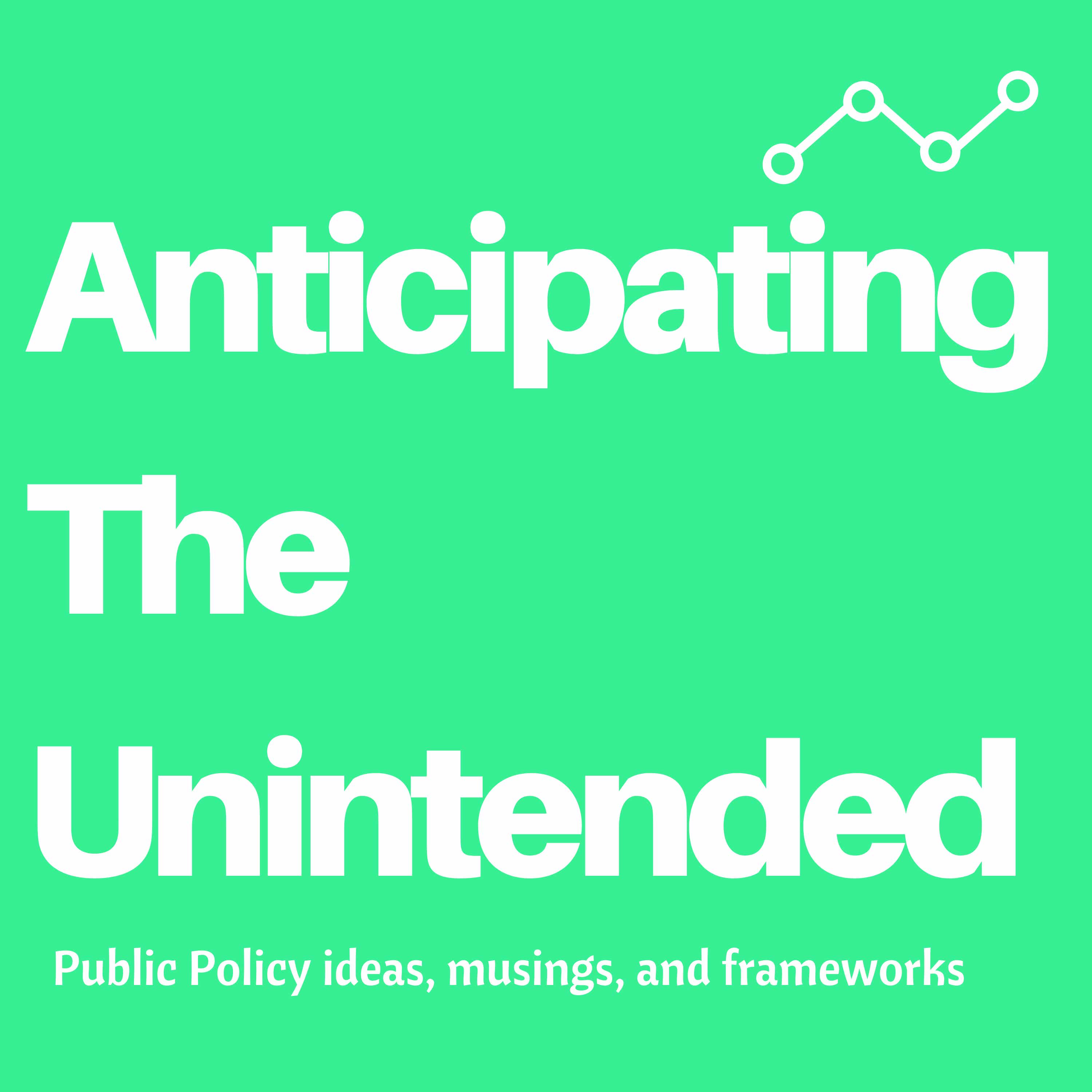#183 Free Lunches Forever
Description
PolicyWTF: Revdi Fertiliser Culture
This section looks at egregious public policies. Policies that make you go: WTF, Did that really happen?
- Pranay Kotasthane
In the past, we have discussed many government plans of the “One Nation, One X” kind. Still, I must confess. Of all things that can substitute the letter X, “fertiliser” was beyond my thinking horizon. Limited thinking wasn’t a problem for the government, which has:
“decided to implement One Nation One Fertiliser by introducing single brand name and the logo under fertiliser subsidy scheme namely Pradhan Mantri Bhartiya Janurvarak Pariyojana (PMBJP).”
While you decipher what this order means, a short detour about the abbreviation PMBJP is in order. Its usage suggests something profound — the government is finally running out of acronyms! I claim so because there’s an existing scheme with the same abbreviation in the very same ministry — the older Pradhan Mantri Bhartiya Janaushadhi Pariyojana (PMBJP), run by the Department of Pharmaceuticals since 2008. Perhaps the reason for repeating this abbreviation is apparent — it comprises both the ruling party and the party leader. To make matters more confusing, this scheme has been hailed as “the call of #NewIndia which will take our nation to greater heights” by a politician whose name also abbreviates to BJP.
The new PMBJP seems utterly bizarre at first. Why would the government want all companies—government-run or private—to sell their products under a single brand name of ‘Bharat’? Why would a government order go to such lengths to specify that “Two-thirds of the area on the top half of a fertiliser bag will be used for the official branding and logo of the PMBJP while a fertiliser firm can use the rest one-third area for its own logo and branding as well as printing other information relating to the product”?
If you dig deeper, the bizarreness gets replaced by a sense of rejection. The diktat to dissolve the value of all fertiliser brands only takes the veneer off the sham called a market for fertilisers. Here’s how.
The fertiliser sector is insanely regulated even by Indian standards. It all began with good intentions. One of the components of the Green Revolution was to subsidise agricultural inputs. And so, a fertiliser subsidy was introduced. The government fixed the retail price of urea fertiliser considerably below the market price to encourage its usage.
This difference between the market and administered prices was called “fertiliser subsidy”. The government paid off the difference to fertiliser companies with taxpayers’ money. Simultaneously, the government started running fertiliser plants to increase supply. Combined with the Minimum Support Price (MSP) mechanism guaranteeing procurement of certain grains, these measures worked to the extent that Punjab, Haryana, and a handful of other states were able to increase grain production rapidly. The fears of India’s dangerous “population bomb” subsided.
But as you might anticipate, interfering with prices had unintended consequences. An overuse of subsidised fertilisers led to a decline in soil quality. An artificially low price also led to the diversion of urea for non-agricultural uses. Urea is a versatile material used in textiles, paint, explosives, and medicinal sectors. Naturally, people purchased cheap fertilisers from retail shops and diverted them to these industries.
The government then introduced the Fertiliser (Movement Control) Order, 1973. Fertiliser couldn’t be sold across states within India without the ministry's permission. Instead, state-level fertiliser requirements were aggregated at the union ministry level, and each state had its quota “allocated” from in-state and select out-of-state fertiliser manufacturing facilities. And, of course, there were the usual export restrictions until recently.
Essentially, there’s no such thing as a market for fertilisers. Just
More Episodes
Prediction Time
—RSJ
In a year when countries as diverse as India, the United States, the United Kingdom, Russia, Taiwan, Pakistan and Palau go for their elections, it is tempting to go for an overarching theme for the year while looking ahead. Unfortunately, like these aforementioned elections...
Published 01/14/24
Published 01/14/24
Happy New Year
— RSJ
Happy 2024, dear readers!
We hope 2023 was good for all of you. If it wasn’t, we are glad that it’s behind you. We didn’t have too bad a 2023 ourselves. This newsletter went along swimmingly (or so we think) and we had our book ‘Missing in Action: Why You Should Care About...
Published 01/07/24


